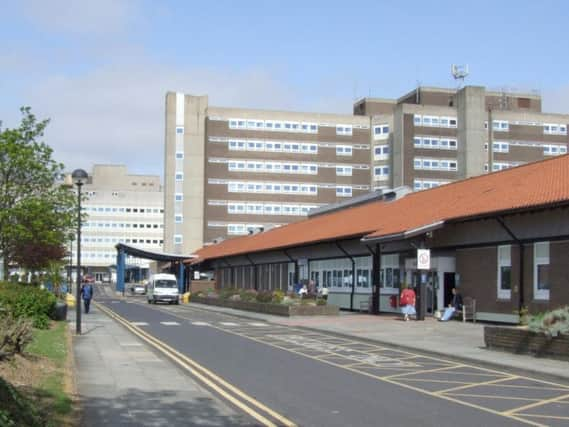Hartlepool's hospital trust has plans ready to deal with potential '˜winter surge' in demand


North Tees and Hartlepool NHS Foundation Trust says it is coping at the busiest and most stressful time of year for health workers.
Plans to cope with the surge in demand the NHS faces over winter were drawn up last year in the wake of some its highest demand in its 70 year history.
Advertisement
Hide AdAdvertisement
Hide AdLast winter saw the highest levels of flu for seven years and cold weather which increased admissions to A&E nationwide.
Lynne Taylor, director of planning and performance, said 2018/19 had been “no exception” so far when it came to the increase in demand.
But she added the trust had learned from last year.
Ms Taylor said: “Learning from last year’s trends we have optimised our operational plans to ensure that we can focus our resources to deliver the best possible care for patients.
“All staff, alongside our primary care and local authority partners, are working hard to deliver consistent quality care despite the pressures.
Advertisement
Hide AdAdvertisement
Hide Ad“Operationally, the plans we put in place to manage winter surge are being effective as we continue to maintain performance against both the emergency and elective standards.”
The director of nursing also praised staff for their efforts in keeping patients safe.
Ms Taylor added: “We would also urge our communities to consider dialling 111 or speaking to their own GP before presenting at any hospital site.”
It comes after the trust reduced hospital acquired cases of clostridium difficile – also known as C Diff – by 27% last year, according to the latest figures.
Advertisement
Hide AdAdvertisement
Hide AdC Diff is a bacterial infection which can affect the bowel and cause diarrhoea.
The infection most commonly affects people who have been treated with antibiotics and can spread easily to others.
Its symptoms can be unpleasant for many but can cause serious bowel problems.
It can even be deadly for frail, elderly patients.
The trust, which runs the University Hospital of Hartlepool and North Tees University Hospital, in Stockton, says it has rolled out a reduction programme to bring cases down.
Advertisement
Hide AdAdvertisement
Hide AdHand hygiene and better prescribing of antibiotics have been part of the strategy.
And a “multi-professional team” of matrons, specialists, doctors and pharmacists have worked closely with clinical staff to reduce the risk of infection, according to the trust.
Julie Lane, director of Nursing, was delighted to with the fall in cases.
She added: “Infection control is a priority for the trust in terms of putting patient safety first and we are keen to drive the figure down even further.
Advertisement
Hide AdAdvertisement
Hide Ad“This is a direct result of the hard work and commitment of staff throughout the trust and I would like to take this opportunity to commend that effort.”
Alex Metcalfe , Local Democracy Reporting Service